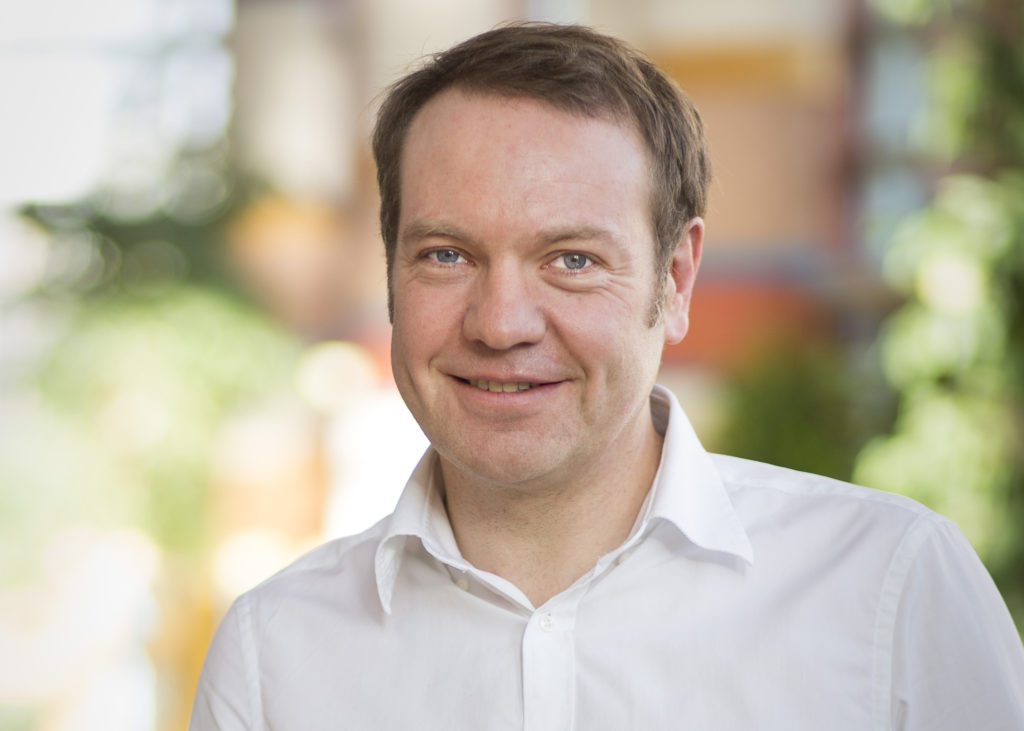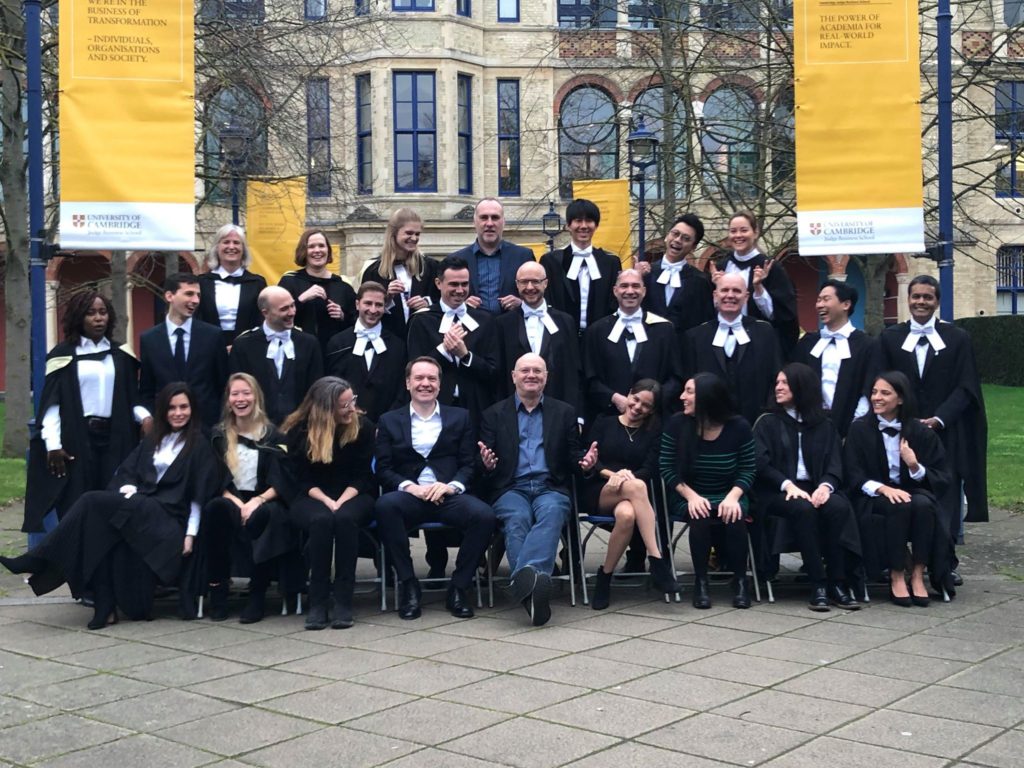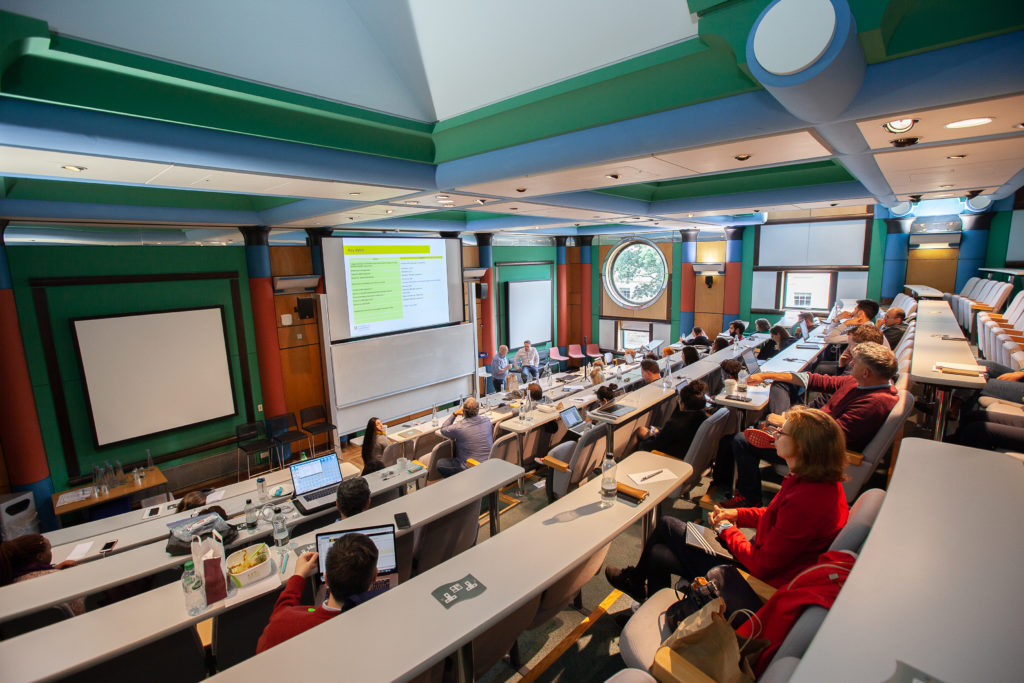
A cold, grey January morning cannot dim the proud smiles of our graduands as they make their way into the iconic building that is Cambridge Judge Business School. The excitement of the greetings between classmates is accompanied by the relief of reaching this moment. The proud faces of their spouses and parents are evidence that our students’ determination to succeed has paid off.
For two years, 35 students from 15 countries have learnt together and worked together to challenge their perceptions of the ‘wicked problems’ faced by diverse communities and develop their understanding of social innovation, which is concerned with the development of creative and practical solutions to complex social problems.
MSt in Social Innovation
The MSt in Social Innovation programme is not for the faint of heart!
This two-year, part-time programme has an intensive online learning requirement, a long reading list, and an extensive written component; and students are expected to attend four week-long residentials in Cambridge. The residentials are where the magic happens. It is the synthesis of learning from our highly regarded experienced faculty team, gaining practical knowledge from our guest lecturers, and the opportunity to discuss and debate current theories and concepts, which coalesce to form the creation of social innovative projects for the future. Please note, hot beverages and warm pastries are provided to assist our students through their intensive time in Cambridge.
The future of social innovation
Whilst education always affords us the opportunity to look back, the MSt in Social innovation demands that practitioners and students focus their sights on the future of communities, large and small, as the Cambridge Centre for Social Innovation’s co-director, Professor Paul Tracey, explains:

Professor of Innovation and Organisation
“Social innovation as an idea is gaining traction and it is a very exciting time to be involved in it. We are seeing, perhaps, the beginnings of a gestalt shift in values and ambitions – the rise of a generation of people whose motivations and preferences are not simply rooted in a desire to consume and accumulate, but to co-operate, collaborate and share. There are many inspiring examples, from tech firms structured as co-ops striving to make access to technology fairer, to social entrepreneurs whose business models are designed to maximise the interests of beneficiaries rather than shareholders, to multinational corporations that are beginning to recognise their role in addressing some of the most pressing social issues we face. We need to nurture and celebrate all of this.
At the same time, it is important to acknowledge and recognise that social innovation is not yet fully in the mainstream. To fulfil its potential, it needs to grow as a movement so that ‘doing good’ isn’t seen as something extraordinary but simply as the basis of organisational life. In fact, ‘success’ might ultimately mean that it makes no sense to think of social innovation as a field in its own right, or as something separate. But how do we get there in the years ahead? Well, it takes people with the passion and drive to motivate, to mobilise and to organise. This means, then, that social innovators are not only faced with the challenge of developing sustainable ways of addressing deep-rooted social problems, but also of inspiring others to do the same. In this respect, the graduates of the Masters of Social Innovation surely have a critical role to play as catalysts to shape and grow a movement for social change. It is a significant responsibility, but one we know that they will relish and approach with the same energy and purpose that they have shown throughout the last two years on the programme.”
The Social Ideas Podcast
In this bonus episode of The Social Ideas Podcast we hear from some of the graduates about the course, their hopes for the future in social innovation, and why you should consider signing up.

Apply
Find out more about the requirements and application process – https://www.jbs.cam.ac.uk/programmes/professional-practice/mst-social-innovation/applying/

Cohort Three attending a residential lecture


James Adams
Congratuluations on graduating, always a memorable day, but marks the start of the future more than anything else. Good luck.
Pam Mungroo
Thank you, James. I’ll pass on your best wishes.
Mati
Congratulations on graduating. The future of social innovation is in your hands now. I taught that you may find as attrative a Central European programme which teaches what social innovations are and how they are created. Please vistit https://www.interreg-central.eu/Content.Node/Social(i)Makers.html to find out more.
Good luck.